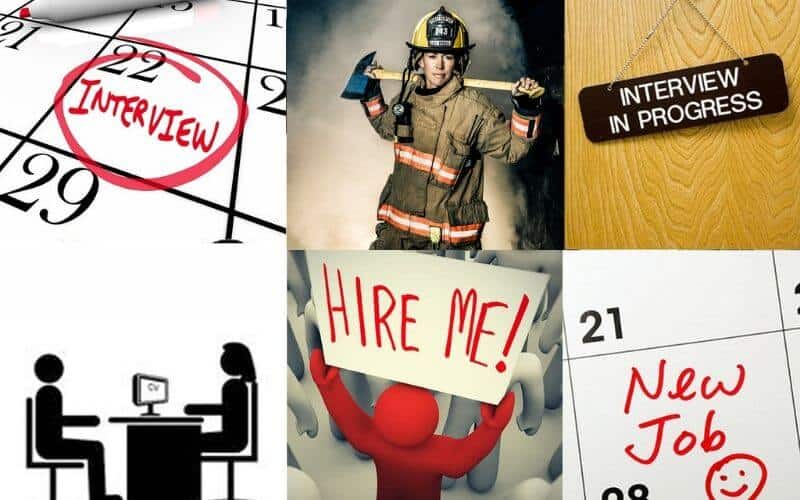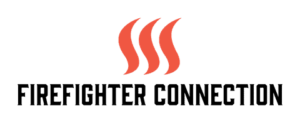
I am asked, on nearly a daily bases, “what are the typical questions asked during an firefighter oral board interview”. This seems to be an easy request, however, with so many types of departments and an ever changing industry this is no longer an easy one to answer.
I’ve been on Firefighter hiring oral board interviews for over 20 of my 31 years in the fire service. There are some typical, or common questions that are asked and will will discuss some of them here. However, it is also very important for you as the recruit firefighter candidate to do your research on the department you are interested. Learn what specific items or “hot topics” might be a priority for their candidate pool. For example, are there looking to start fire based ambulance transport and are looking for Firefighter/Paramedic or Firefighter/EMTs? Do your research on the department. look over their website and speak with firefighters that are on the department.
Below are 11 common, but also harder, questions for the candidate to answer. It’s not because the questions are complicate, its because the candidate did not prepare. Read over each of these questions and really think about how you will answer them. Make your answer concise and relevant and specific to you. I’ve outlined some good, and bad, answers we typically hear.
Here are 11 of the tougher Interview question you will commonly encounter.
1. Tell us why you would like to work in the fire service?
Similar question -Tell us why you want to work for our department?
An Awful reply: “I like firefighting, it’s cool. I’m kind of a daredevil and like the risk.
Don’t simply say you like it, anyone can say that, and many do. Zero in on experiences with any fire rescue services. This might be through a friend or from you military experience. This might also simply be a call you witnessed.
Make sure you touch o topics that are relevant to the department
Better response: “I have consistently appreciated and respected the people who put their lives at risk to help others. My desire of become a firefighting grew after I saw a post-crash discussion. I heard how they strived to work as a team and how they could improve next time while always keeping safety a top priority.
2. Tell us about yourself and how you’ve prepared for this firefighter position.
Terrible reply: “I graduated four years prior from the University of Michigan, with a Bachelor’s certification in Biology, however I realized that wasn’t the correct fit for me. I changed gears and landed my first position working in a local group of volunteer fire-fighters. Then, at that point, I proceeded to work in another job and began taking an interest in instructional classes. From that point onward, I required a couple of months off to travel. At long last, I returned to begin working once more. What’s more, presently, here I am, searching for a serious fire department.”
Rather than giving in an ordered work history, center around your qualities and how they relate to the job. I
Good response: “I’m an exceptionally enthusiastic and balanced individual who can adhere to guidelines. I’m a good communicator and a serious team player. During college I watched a group of firefighters working on their EMT certification. I was drawn to their passion to learn and work together. I enrolled in to the next EMT class and recently start as a volunteer firefighter.”
3. Tell us why you want to leave your present job?
An Awful reply: “I can’t stand my boss, or the work I’m doing.”
Once more, avoid knocking your work or business. Zero in on the positive.
Clever response: “I’ve taken in a great deal from my present job, yet presently I’m searching for another test to expand my viewpoints and to acquire new ranges of abilities – all of which, I see the potential for in this live of work as a firefighter.”
4. Where do you see yourself in five years?
Terrible reply: “Unwinding on an ocean side in Maui,” or “a role on the department as a chief officer”.
There’s actually no right response to this inquiry, however the questioner needs to realize that you’re aspiring, vocation situated, and focused on a future with the organization. So rather than sharing your fantasy for exiting the workforce, or attempting to be interesting, offer them a response that represents your drive and responsibility.
Clever response: “In five years I’d prefer to have a far superior comprehension of the fire service. Likewise, I truly appreciate being the first to a scene. I function well under tension. Eventually, I’d prefer to be in a officer type position, where I can utilize my abilities and industry knowledge to help individuals working with me, and those we are there to help.”
5. What’s your most prominent shortcoming?
Terrible reply: “I often procrastinate”
This inquiry is an incredible chance to put a positive twist on something negative, however you don’t want your response to be non factual. All things considered, attempt to utilize a genuine illustration of a shortcoming you have figured out how to convene that you have worked hard to improve in the area.
Clever response: “I’ve never been entirely OK with public speaking, Understanding this was an issue, I inquired as to whether I could take a course to improve. I have recently joined toastmasters to help in this area.
60 Seconds and You’re Hired!
Whether you are moving up, moving on, or just starting out, America’s top career coach, Robin Ryan, offers proven, easy-to-learn techniques for mastering the job interview and landing the job of your dreams.
6. What compensation would you say you are searching for?
Terrible reply: “In my last occupation I procured $35,000 – along these lines, presently I’m searching for $40,000.”
In the event that you can stay away from it, don’t give a solid number. Emphasize your obligation to the actual work. On the off chance that you need to, give a wide reach dependent on research you’ve led on that specific job, in your specific city.
Smart response: “I’m more inspired by the actual job than the compensation. All things considered, I’d hope to be paid the fitting reach for this job.”
7. Why should we hire you?
Terrible reply: “I’m the best candidate for the job.
A good response will repeat your capabilities, and will feature what makes you special.
Clever response: “I’ve been a )state your current job) for five years – my manager has said consistently that without me, the division wouldn’t be as effective. I’ve likewise set aside the time and effort to instruct myself on a being a solid fire recruit by taking classes and obtaining my EMT certification.”
8. What has been your biggest disappointment, and what did you learn from it?
Awful reply: I never completed college – and all that has occurred from that point forward has taught me that giving up, has become truly challenging.”
You would prefer not to really feature a significant failure – particularly one that uncovered a general disappointment with your life. All things being equal, center around a more modest, however huge, accident, and how it has made you a better person.
Clever response: “When I was in school, I took a craftsmanship class to enhance my educational plan. I didn’t treat it in a serious way, and expected that, contrasted with my Engineering classes, it would be a stroll in the park. My weak grades at midterm showed me this is not the case, I had even put my grant status at risk. I spent the remainder of the semester struggling to catch up, I wound up getting a fair grade in the class. However, I discovered that regardless of how easy or non important something is I need to work hard and always strive for my best.
9. How would you clarify your gap in your work history?
Terrible reply: “I was so worn out on working, and I really wanted a break.”
Hopefully you don’t have many or long gaps in your work history. However, the reality many of us do. Work gaps are consistently difficult to clarify. You would prefer not to seem to be apathetic or unhirable. Figure out how to cause your lengthy joblessness to appear as though a decision you made, for the right reasons.
Clever response: “My work is essential to me, so I will not be happy with any old work. Rather than hurrying to acknowledge the primary thing that comes my direction, I’m taking as much time as is needed and being specific to ensure my next career is the right one.”
10. When were you generally fulfilled in your work?
Terrible reply: “I was most fulfilled when I progressed and had people working under me. I like being the boss.”
Try not to offer unclear responses. All things being equal, ponder something you progressed admirably and partake in that will be applicable at this new position. This is a chance for you to share your inclinations, demonstrate that you’re ideal for the work, and feature your energy.
Smart response: “I’m an extrovert. I was consistently more fulfilled when I was working with local area merchants ensuring I had the opportunity to address their issues.”
11. Describe a time when you didn’t agree with a coworker.
Awful reply: “I’m not difficult to work with, so I’ve never had any sort of disagreement with another co worker.”
Interview panels do not care for these kinds of “simple out” replies. Furthermore, they realize you are presumably not coming clean. Think about a moderately harmless (yet critical) occurrence, and twist it to be a positive learning experience.
Clever response: “I used to struggle to agree with an individual EMT. We differ over a great deal of things – from the consideration of regular people to who got what tasks how to talk with a patient’s family. Our characters simply didn’t work. Following three months of challenges, I pulled her to the side and asked to go to lunch At lunch, we discussed our disagreements and why we were not getting along. We realized at that point that we both had strengths and challenges that we could support with each other making us a great team instead of two individuals.
These are just a few examples of some of the tougher questions that you can encounter during your oral interview. Please understand that my example answers are just that. What is important for you is the read these questions and think about good answers that are honest, engaging, and complete. Life experiences are always a strong way to answer character questions like these.
For more information on how to prepare for the Firefighter interview process take a few minutes to read my post on how to prepare for the three types of oral firefighter interviews by clicking the link here: The Firefighter Interview, Prepare for All Three”
Good luck to you on your quest to becoming a career firefighter!

